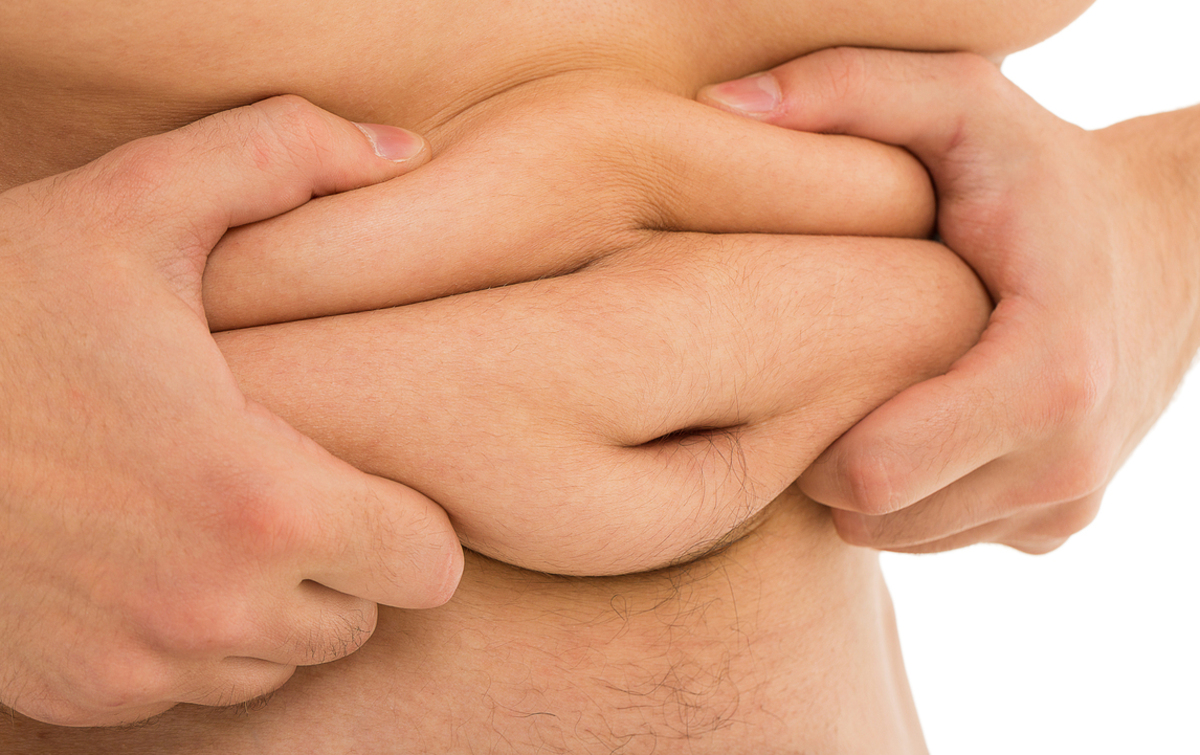Obesity is pretty common in the United States — 37.7 percent of adults would be considered obese, data shows, while 9.9 percent of women and 5.5 percent of men fall into the extremely obese category, which can be defined as having a Body Mass Index of 40 or over. Around half of all Americans indicate that they'd like to lose weight.
Some seriously go for it, and that includes people who successfully lose massive amounts. Accomplishing extreme weight loss isn't easy, but many people will soon notice the health benefits as well as rightfully feeling proud of what they achieved. The downside? Many folks who lost significant amounts of weight are left with excess skin. That's not just annoying and a hit to self-confidence, but can actually present a health problem.
What do you need to know about excess skin after weight loss? Can you get rid of it?

What causes excess skin after weight loss, and who can reasonably expect this problem?
Whether or not someone will have (significant) excess and loose skin after weight loss depends on many factors, including their initial weight and how much they lost, how long they were obese, their age, their genetic makeup, and also their lifestyle choices — smoking and spending lots of time in the sun are both detrimental to your skin's natural ability to heal, for instance. People who undergo weight loss surgery to help them achieve their goals will often have been quite obese for a long time, and may therefore also be slightly older. It's no surprise that many people who had bariatric surgery will struggle with excess skin.
Excess skin is most commonly found on the upper arms and in the abdominal area. This can cause discomfort that makes daily physical activity difficult and discourages people from engaging in exercise routines that will keep them healthy and help them maintain their new weights. It can also lead to skin rashes as sweat builds up under skin folds, and cause people with excess skin to feel unconfident and unattractive.
Can you do anything to get rid of excess skin after significant weight loss?
Various approaches can help people who've lost lots of weight and are now dealing with loose excess skin tighten things up. Let's take a look.
1. Try retinol cream
Retinol is the over-the-counter version of tretinoin (Retin-A), a powerful vitamin A derivative that helps counter the effects of aging and sun damage. Because retinol promotes collagen production, it has the potential to help firm up sagging skin after weight loss — but keep in mind that it won't work immediately, and retinol isn't a miracle cure, either.
2. See if muscle toning makes a difference
We know it's hard to work out with significant amounts of excess skin, but a regular resistance training routine will help you tone your muscles. This will fill out some of the empty space left by your weight loss, and though it's not actually going to tighten your skin, working out may reduce the appearance of excess skin. This is particularly true for people who don't have massive amounts of extra skin, but it will help some even for folks who have more. Make sure to build your workout routine up gradually.
3. Consider oral collagen
There isn't currently that much data to suggest that oral collagen pills will help you firm your skin up after significant weight loss, but it's an option you could consider and discuss with your doctor.
4. Look into body-contouring surgery
Body-contouring surgery is the Holy Grail for people who have lost lots of weight and are dealing with serious excess skin that no other approach could really make a dent in — one study showed that over 60 percent of people suffering from excess skin after bariatric surgery wanted to have body-contouring surgery on more than one body part.
It's expensive, and not necessarily covered by insurance, but "skin surgery" after weight loss can get rid of excess skin on your arms (brachioplasty), abdomen (tummy tuck/abdominoplasty), back and chest, and even your thighs and buttocks. Depending on where you live, you may be able to make the case that this isn't merely a cosmetic surgery, since excess skin can cause real health problems and greatly affect your quality of life.
- Photo courtesy of SteadyHealth
- www.niddk.nih.gov/health-information/health-statistics/overweight-obesity
- www.cdc.gov/obesity/adult/defining.html
- www.ncbi.nlm.nih.gov/pubmed/25671051
- www.ncbi.nlm.nih.gov/pubmed/25660807
- link.springer.com/article/10.1007/s11695-013-0978-z
- www.ncbi.nlm.nih.gov/pubmed/23578737
- www.advanced-dermatology.com.au/excess-skin-after-weight-loss
- www.ncbi.nlm.nih.gov/pubmed/26267777
- www.ncbi.nlm.nih.gov/pubmed/22467000


Your thoughts on this